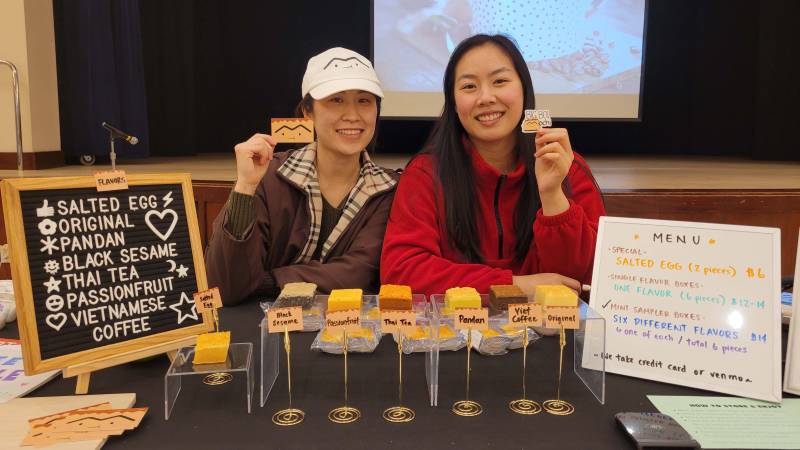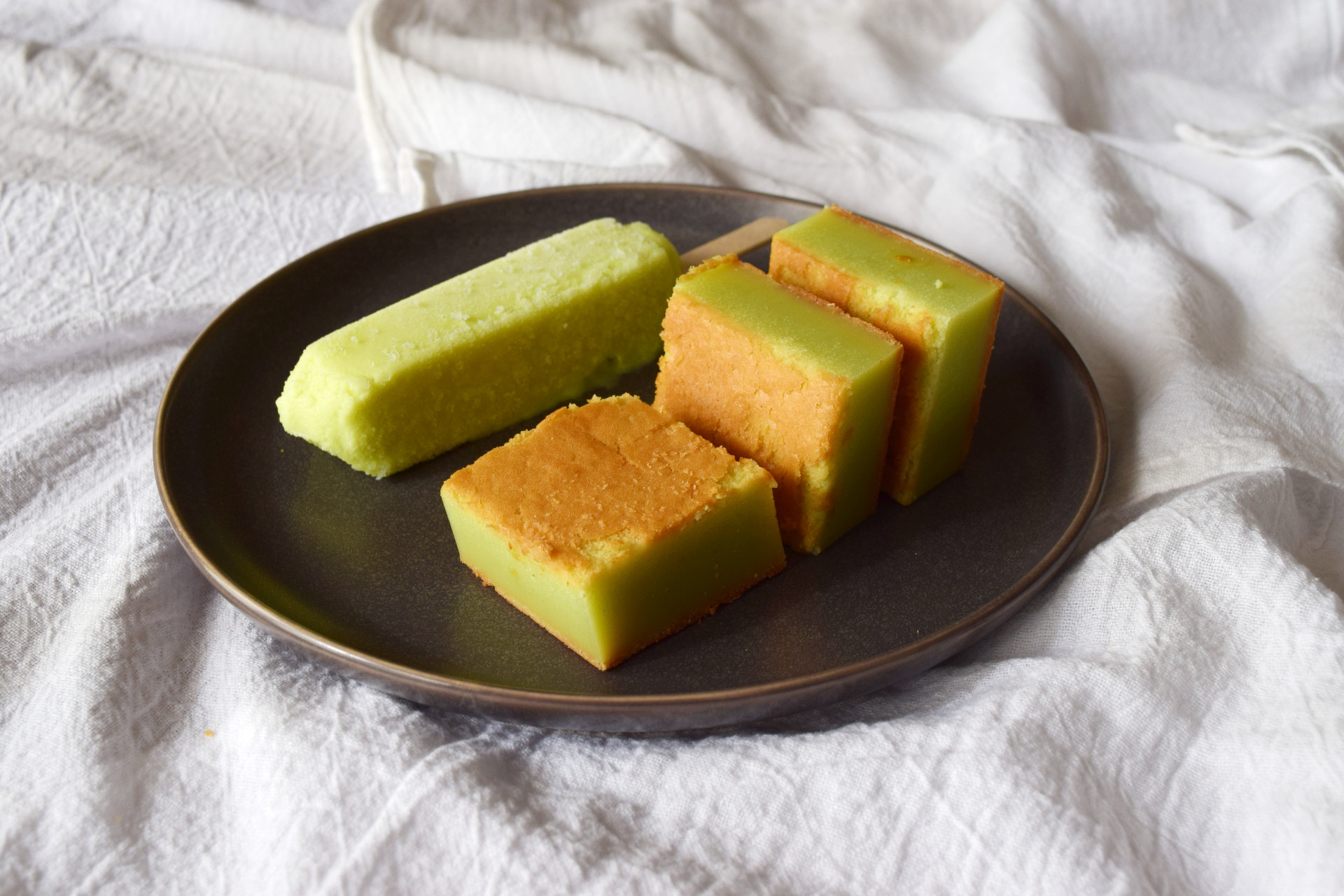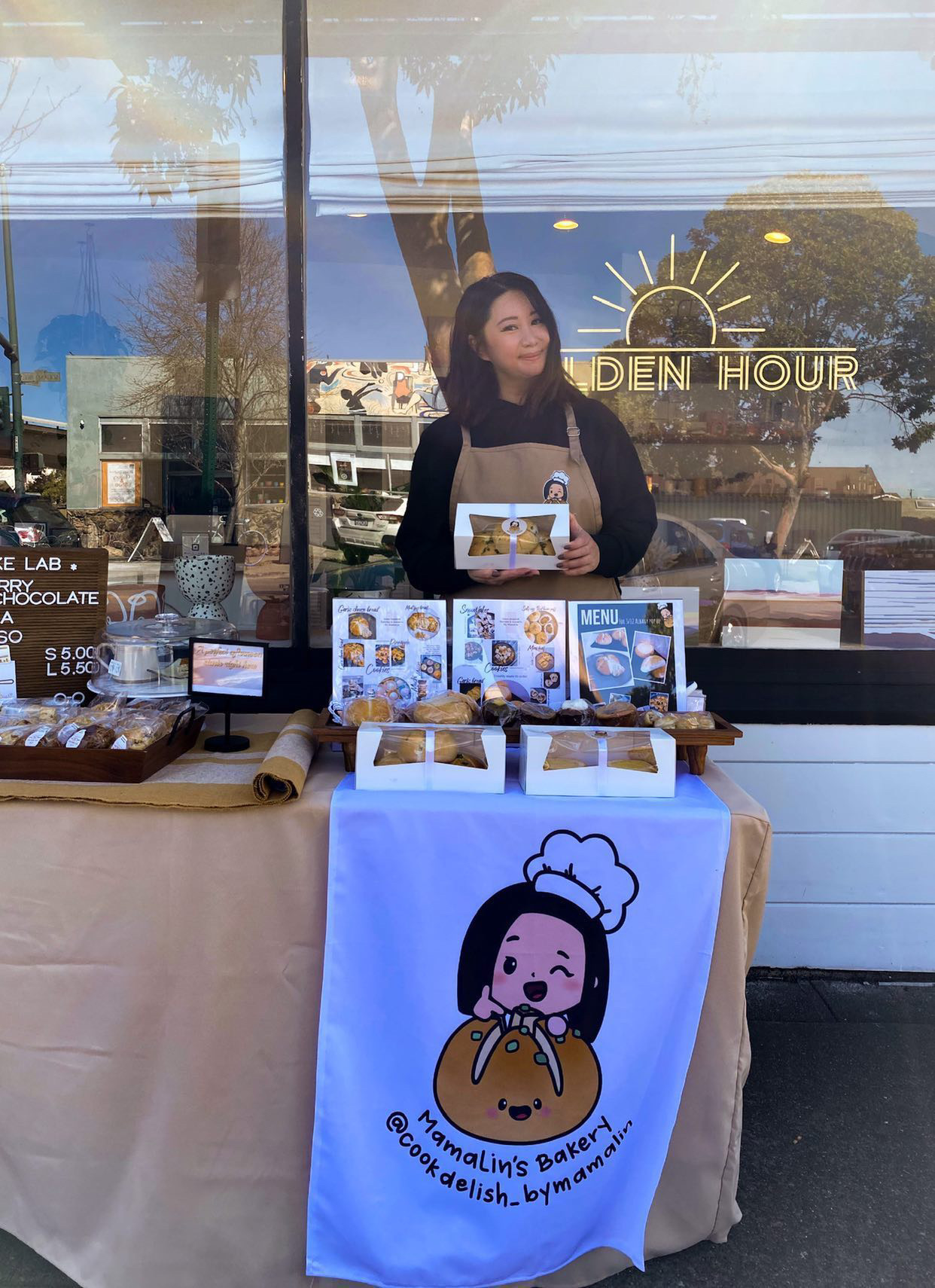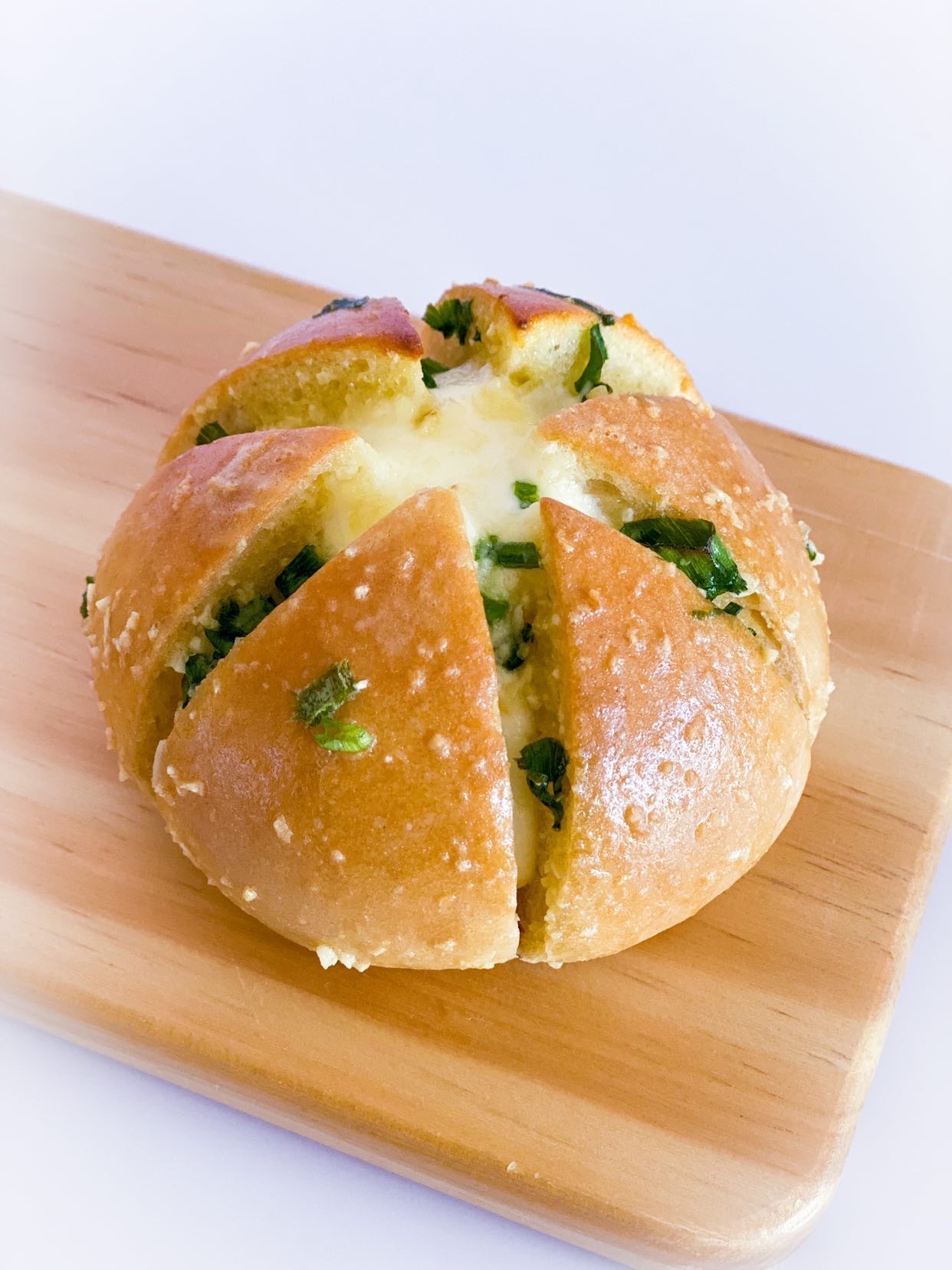Editor’s note: It’s KQED Youth Takeover week. From April 25-29, we’re featuring stories by high school students from around the Bay Area.
Q
uarantine ignited the long-lost baker inside many Americans, who spent the early days of the pandemic tearing through yeast packets, with all their leavening glory. The kitchen became a haven for creativity during these bewildering times. For a while, it felt as though everyone in America was baking sourdough or focaccia.
Some Asian American bakers, on the other hand, looked toward their identities for inspiration. Instead of sourdough bread, their ovens churned out trays of Hawaiian butter mochi, ube bread pudding and garlic-scallion cream cheese buns. These home bakers used many of the same ingredients as their sourdough-obsessed counterparts—flour, water, yeast and sugar. But they also incorporated traditional flavors from their own culture.

As the pandemic progressed, a number of Asian American home bakers started sharing these treats on Instagram and other social media platforms—and, in many cases, turned their hobby into an online business. Here in the Bay Area, the past two years have given rise to a growing movement of Asian American home bakeries. For these Instagram-based businesses, the pandemic did more than just provide a chance to explore new recipes. It also allowed Asian American bakers to develop a deeper connection to their own heritage.
Homage to Ube
South San Francisco-based Kapwa Baking Company is one of the many Instagram-based home businesses that popped up during the pandemic. As work turned remote and schools switched to Zoom, Faye Baltazar-Caylao and Ryan Caylao finally had the spare time to jumpstart an idea that had been stuck on the backburner for years. The couple wanted to start a business that encapsulates their Filipino heritage and the idea of “kapwa.”
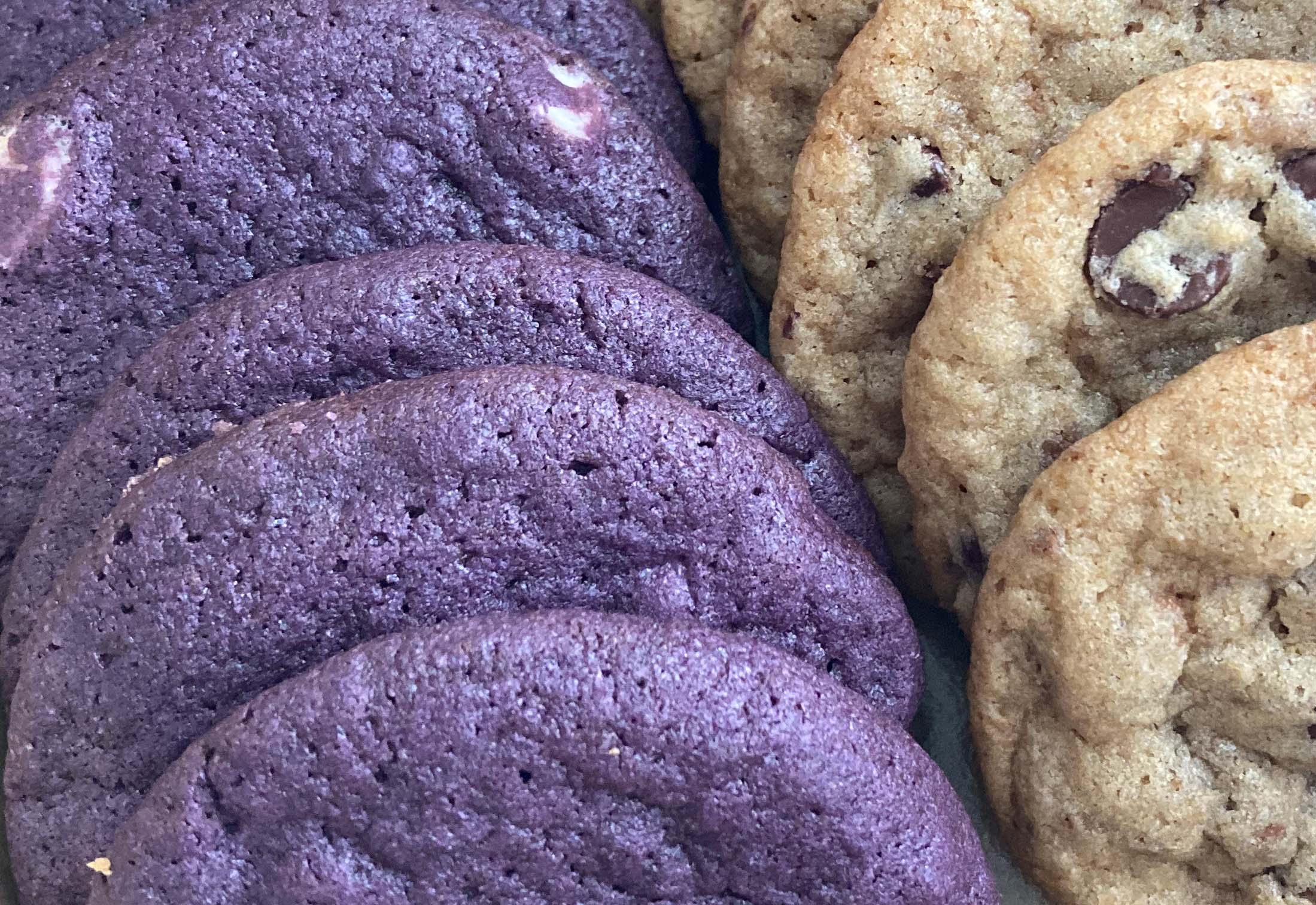
Kapwa is “Filipino for neighbor, community, or a shared sense of self,” the Caylaos explained. “There’s not a concrete definition for kapwa. It’s an essence or feeling for Filipino independence. It’s almost like ‘we are kapwa’ ‘we are united’.” It’s a sense of pride that seeps through generations of Filipinos and through hundreds of years of Spanish colonialism. This Filipino pride is evident on Kapwa Baking Company’s Instagram feed, which spills bright violets—an homage to ube, a purple yam native to the Philippines.
